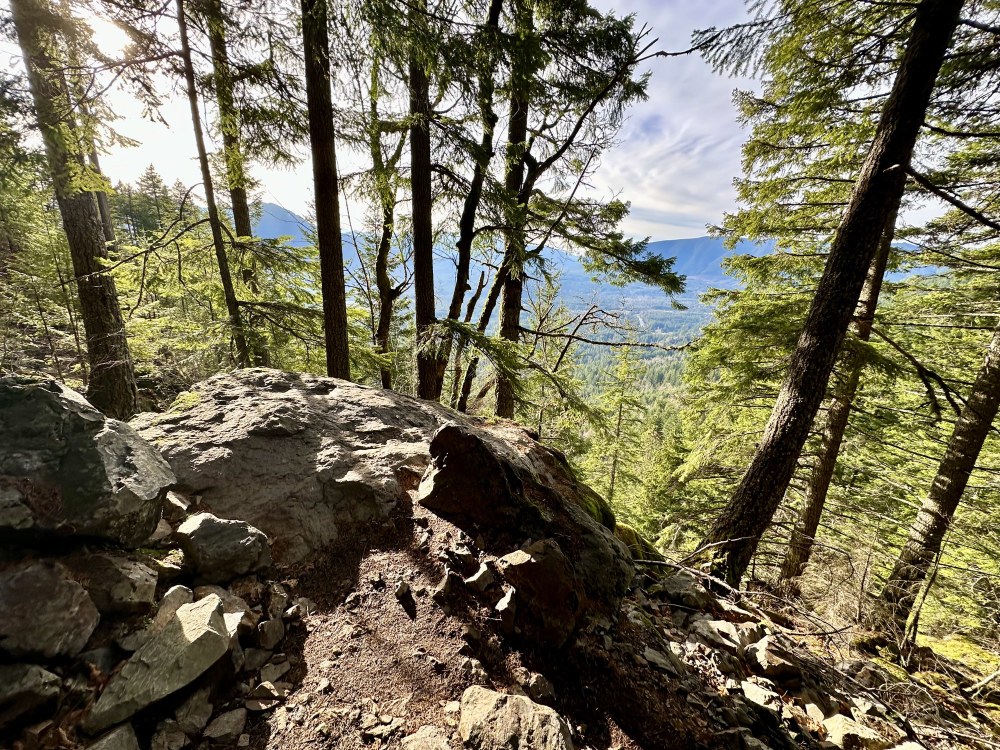
Over the last several months, we shared our opposition to Washington ballot initiative 2117 and engaged in advocacy to defeat it because we strongly believe that we must continue to fight the climate crisis here in Washington state and beyond.
After a strong show of support for Washington’s clean air, clean water, and carbon emissions reduction efforts, we’re excited to celebrate the successful defense of the Climate Commitment Act (CCA). Defeating I-2117 - by a nearly two to one margin - and maintaining the state’s cap and invest program will go a long way to ensure clean air, clean water, and healthy landscapes and communities for current and future Washingtonians.
The Importance of CCA Funding
As we experience worsening impacts of the climate crisis on our lands, waters, and communities, we must do more to respond to this urgent threat. The future of our organization and the planet depends on bold climate action and climate-resilient public lands and waters.
In 2021, the CCA created a market-based cap and invest program to help reach the target goal of reducing 95% of Washington’s greenhouse gas emissions by 2050. Passage of I-2117 would have repealed the CCA and prohibited the State from enacting any similar programs moving forward.
Revenue generated by the CAA funds state land managers’ work to conserve and protect public lands and leverage nature-based climate solutions to enhance the climate resiliency of our landscapes. For example, investments in Washington’s Trust Land Transfer and Community Forests programs leverage CCA dollars to conserve popular recreation areas like Tiger Mountain and the Mountain Loop Highway.
CCA funding also helps Washingtonians switch to climate-friendly energy options for their homes, schools, businesses, vehicles, and more, and a percentage of CCA funds go toward tribal-led or focused projects. The program has already generated more than $2 billion for projects across the state and is poised for an even greater impact. For example, grant funding that helped achieve net zero carbon emissions for The Mountaineers Tacoma Program Center was funded by the Climate Commitment Act.
No on 2117
Opposing the initiative and joining the No on I-2117 campaign presented an opportunity to live out our organizational values and engage in climate advocacy on an issue that will significantly impact Washington’s communities, lands, and waters. We called on our community to join us in prioritizing climate investments, clean air, and clean water by voting “no” on the initiative. We appreciate how members of our community joined the effort to oppose and defeat the initiative.
The No on 2117 coalition - which grew to more than 600 organizations - included Tribal Nations, climate and environmental organizations, small businesses, and large companies. Several of our advocacy partners signed on to the campaign as well, including Washington Trails Association, Surfrider Foundation, Conservation Northwest, Washington Wild, Sierra Club Washington State Chapter, and The Nature Conservancy. Read more about why rejecting the initiative was important for outdoor recreation in this joint statement from some of the coalition’s recreation partners.
The outcome of I-2117 will shape the future of meaningful emissions reduction efforts in our state moving forward.
What’s Next?
This victory isn’t just a significant milestone for climate investments in Washington, it sends a strong signal to other states that there’s a path forward to prioritize healthy lands, waters, and climate. The Climate Commitment Act’s programs, investments, and successes can continue to serve as a model toward a more sustainable future across the country.
With the future of federal climate investments up in the air due to a significant shift in the balance of power in Congress and the Administration, it’s increasingly critical that states do their part to curb carbon emissions.
We’re encouraged to know that Climate Commitment Act revenue streams will continue thanks to the defeat of I-2117. We’ll continue to monitor implementation of the CCA to reduce carbon emissions and protect natural landscapes across Washington state, including opportunities to leverage additional CCA dollars to achieve net zero carbon emissions for our Seattle Program Center.
We're grateful to our community for continuing to adventure with purpose toward a more sustainable climate future for all.
More on The Mountaineers opposition to initiative 2117 can be found in this blog.
 The Mountaineers
The Mountaineers